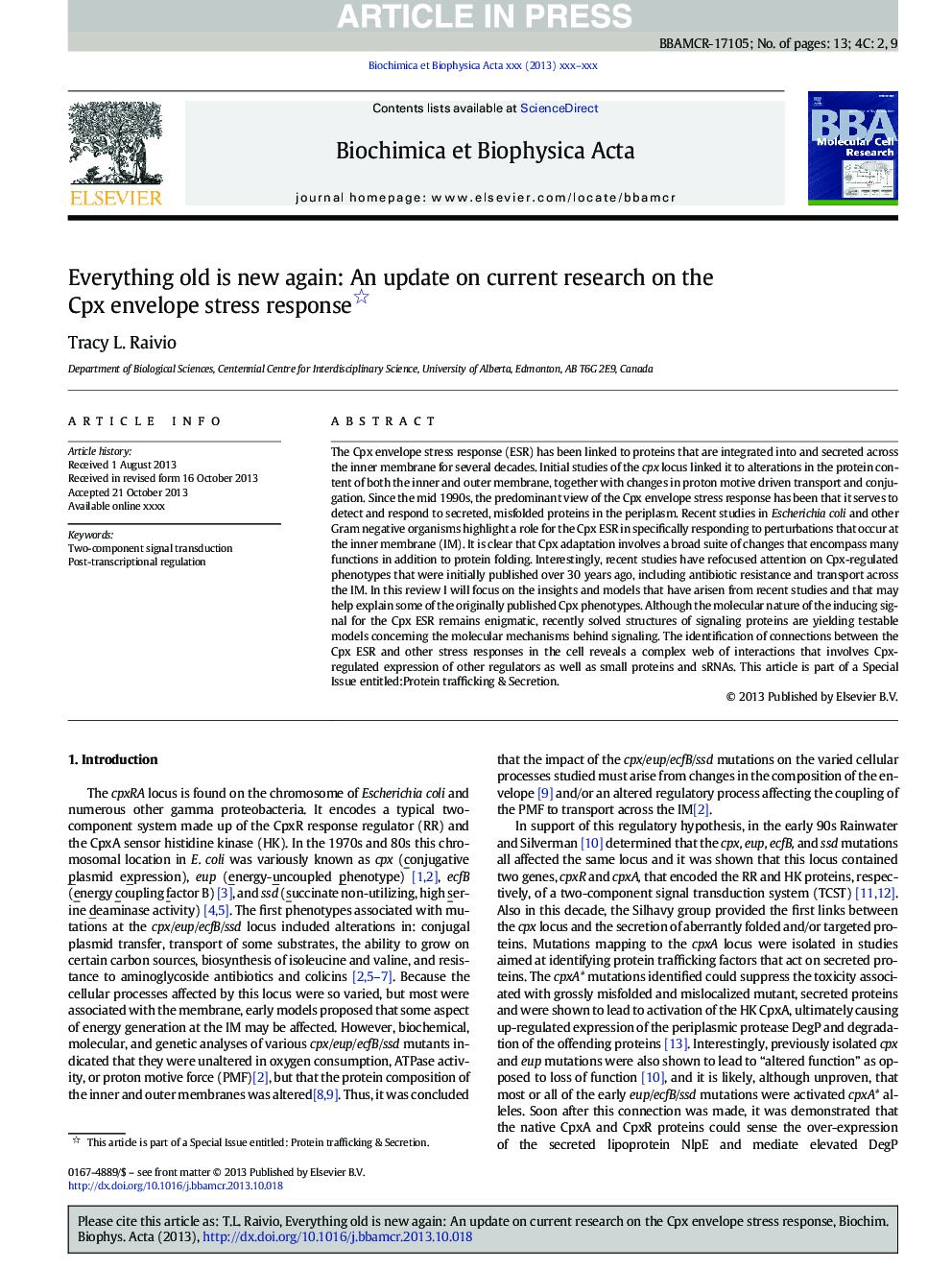| Article ID | Journal | Published Year | Pages | File Type |
|---|---|---|---|---|
| 10802132 | Biochimica et Biophysica Acta (BBA) - Molecular Cell Research | 2014 | 13 Pages |
Abstract
The Cpx envelope stress response (ESR) has been linked to proteins that are integrated into and secreted across the inner membrane for several decades. Initial studies of the cpx locus linked it to alterations in the protein content of both the inner and outer membrane, together with changes in proton motive driven transport and conjugation. Since the mid 1990s, the predominant view of the Cpx envelope stress response has been that it serves to detect and respond to secreted, misfolded proteins in the periplasm. Recent studies in Escherichia coli and other Gram negative organisms highlight a role for the Cpx ESR in specifically responding to perturbations that occur at the inner membrane (IM). It is clear that Cpx adaptation involves a broad suite of changes that encompass many functions in addition to protein folding. Interestingly, recent studies have refocused attention on Cpx-regulated phenotypes that were initially published over 30Â years ago, including antibiotic resistance and transport across the IM. In this review I will focus on the insights and models that have arisen from recent studies and that may help explain some of the originally published Cpx phenotypes. Although the molecular nature of the inducing signal for the Cpx ESR remains enigmatic, recently solved structures of signaling proteins are yielding testable models concerning the molecular mechanisms behind signaling. The identification of connections between the Cpx ESR and other stress responses in the cell reveals a complex web of interactions that involves Cpx-regulated expression of other regulators as well as small proteins and sRNAs. This article is part of a Special Issue entitled: Protein trafficking and secretion in bacteria. Guest Editors: Anastassios Economou and Ross Dalbey.
Related Topics
Life Sciences
Biochemistry, Genetics and Molecular Biology
Biochemistry
Authors
Tracy L. Raivio,
